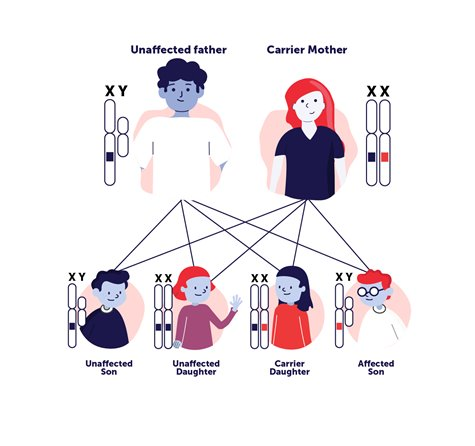High muscle strength can prevent type 2 diabetes regardless of genetic susceptibility
The study found that higher muscle strength was associated with over 40% lower risk of T2D, regardless of genetic susceptibility to T2D. The study highlights the importance of maintaining or improving muscle strength as a key strategy for preventing T2D. The findings were published in BMC Medicine.
T2D is one of the most common chronic metabolic disorders, and it is associated with an increased risk of various complications, including heart disease, stroke, high blood pressure, and narrowing of blood vessels. It is characterized by elevated blood sugar levels, also known as hyperglycemia, due to insulin resistance and impaired insulin secretion.
Evidence suggests that around 10% of the global population is affected by T2D, therefore, preventing T2D is a significant global public health concern. T2D can be caused by the interplay between non-modifiable genetic traits and modifiable lifestyle factors. Muscle strength is an important aspect of muscular fitness, and it has been found to be associated with lower risk of various cardiometabolic diseases including T2D.
However, it remains unclear whether improving muscle strength should be considered a T2D prevention strategy in individuals with varying levels of genetic susceptibility to T2D, particularly those with high genetic susceptibility to T2D.
Research methods and findings
The research utilized data of 141,848 white British individuals without baseline T2D from the UK Biobank, an ongoing prospective cohort of over 500,000 U.K. adults which includes extensive genotype and phenotype information. Muscle strength was assessed in the form of grip strength. Genetic risk of T2D was estimated based on 138 known genetic variants for T2D.
The participants were followed up for more than seven years. During the follow-up period, 4,743 new T2D cases were identified. The findings indicated that, compared with low muscle strength, individuals with high muscle strength was associated with a 44% lower relative risk of developing T2D, even after taking into account T2D genetic risk as well as other risk factors.
Moreover, the research team observed evidence of an interaction between muscle strength and genetic susceptibility to T2D, suggesting that muscle strength may play a role in modifying the impact of genetic risk to T2D onset. The findings further revealed that individuals at high genetic risk of T2D but with high muscle strength could have a lower absolute risk of T2D, compared with those at low or medium genetic risk but with low muscle strength.
This study uncovered the first-ever prospective associations between muscle strength, genetic susceptibility to type 2 diabetes, and the risk of developing the disease. "The findings emphasize the crucial role of maintaining or enhancing muscle strength as a key strategy for preventing T2D in middle-aged and older adults, regardless of their genetic risk levels and including those at high genetic risk.
"We believe that these results offer novel insights into the significant impact of higher muscle strength on metabolic health," said Dr. Wang Mengyao, from the School of Public Health at HKUMed, the first author of this study.
"This study highlights the significance of Biobank studies in examining the interaction between exposures and genetics in influencing the risk of T2D. Further research utilizing ethnic-specific Biobank studies is needed to determine if these findings are applicable to other populations, such as East Asians," said Professor Ryan Au Yeung, Assistant Professor from the School of Public Health at HKUMed, a co-author of this study.
"Individuals in middle-to-late life are at increased risk of type 2 diabetes. However, our study has demonstrated the potential roles of high muscle strength in preventing the future risk of developing type 2 diabetes not only in all individuals, but also in individuals with high genetic predisposition to type 2 diabetes.
"Our study supports the current public health guidelines which suggest that adults should engage in muscle-strengthening activities for at least two days per week from a disease prevention perspective," added Professor Youngwon Kim, from the School of Public Health at HKUMed, the corresponding author of the study.
Genetic disorder, inherited disease, mutation, DNA sequencing, chromosomal abnormality, gene therapy, rare disease, hereditary condition, genetic screening, precision medicine, Mendelian disorder, genomic research, personalized treatment, epigenetics, autosomal recessive, autosomal dominant, next-generation sequencing, genetic counseling, gene expression, pathogenic variant
#GeneticDisorder, #InheritedDisease, #Mutation, #DNASequencing, #ChromosomalAbnormality, #GeneTherapy, #RareDisease, #HereditaryCondition, #GeneticScreening, #PrecisionMedicine, #MendelianDisorder, #GenomicResearch, #PersonalizedTreatment, #Epigenetics, #AutosomalRecessive, #AutosomalDominant, #NextGenSequencing, #GeneticCounseling, #GeneExpression, #PathogenicVariant
International Conference on Genetics and Genomics of Diseases
Visit: genetics-conferences.healthcarek.com
Award Nomination: genetics-conferences.healthcarek.com/award-nomination/?ecategory=Awards&rcategory=Awardee
Award registration: genetics-conferences.healthcarek.com/award-registration/
For Enquiries: contact@healthcarek.com
Get Connected Here
---------------------------------
---------------------------------
in.pinterest.com/Dorita0211
twitter.com/Dorita_02_11_
facebook.com/profile.php?id=61555903296992
instagram.com/p/C4ukfcOsK36
genetics-awards.blogspot.com/
youtube.com/@GeneticsHealthcare

Comments
Post a Comment